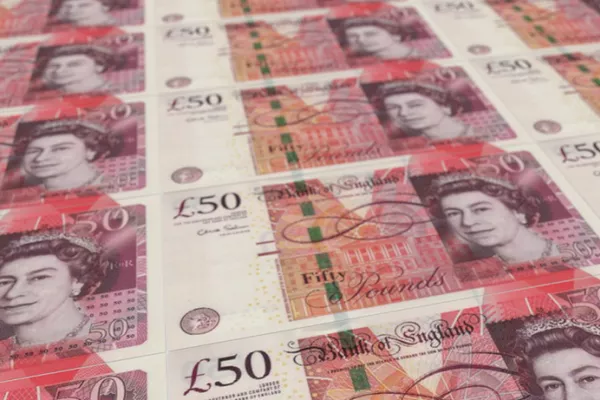The strength of a currency is one of the most crucial elements that determine its value in international trade. It influences foreign investment, import and export pricing, tourism, and even affects the daily life of residents of a country. Two of the world’s most widely traded currencies are the British pound sterling (GBP) and the United States dollar (USD). In this article, we will explore the relative strengths of the GBP and USD and analyze which of the two is stronger.
What determines the value of a currency?
The value of a currency is determined by various factors such as the country’s economic growth rate, inflation rate, political stability, interest rates, trade balance, and geopolitical risks. Currency traders and investors worldwide monitor these factors continuously to make informed decisions about buying or selling currencies.
In the case of Britain and the United States, both countries have stable economies with significant global influence. However, the value of each country’s currency depends on various factors unique to the country.
Historical context
Looking back at history, the value of the GBP has fluctuated considerably over the years. Before World War I, the pound was considered the world’s strongest currency and the primary reserve currency for many countries. However, due to events such as WWI and WWII and their impact on the British economy, the pound became weaker.
In contrast, the USD gained popularity during the early 20th century. After World War II, the Bretton Woods Agreement established the USD as the world’s reserve currency, meaning that countries agreed to peg their currencies to the USD. This agreement made the USD the most powerful currency globally in the post-WWII era.
Current economic situation
As of May 2023, the GBP is trading at around 1.41 against the USD. The UK economy experienced a significant contraction in 2020 due to the COVID-19 pandemic, but it has since rebounded and is expected to grow by 6.4% in 2021. On the other hand, the US economy is also recovering from the pandemic, with GDP growth projected to reach 6.5% in 2021.
Inflation:The inflation rate is an essential factor that affects currency values. Inflation refers to the increase in the price of goods and services over time. When inflation is high, consumers need more money to purchase the same amount of goods and services, which can lead to a decrease in currency value.
As of April 2023, the UK’s inflation rate was 4.2%, while the US’s inflation rate was 5.4%. The higher inflation rate in the US could potentially lead to a weaker USD.
Interest rates:Another crucial factor that determines the strength of a currency is interest rates. Central banks use interest rates to control inflation and manage their country’s monetary policy. Higher interest rates typically lead to a stronger currency as they attract foreign investment.
As of May 2023, the Bank of England’s base interest rate stands at 0.1%, while the Federal Reserve’s base interest rate is at 0.25%. The lower interest rate in the UK could potentially lead to a weaker GBP.
Trade balance:A country’s trade balance measures the difference between its exports and imports. A positive trade balance means that a country exports more than it imports, leading to increased demand for its currency and potentially a stronger currency.
As of 2022, the UK had a trade deficit of around £21 billion, while the US had a trade deficit of $914 billion. While both countries have negative trade balances, the US’s larger trade deficit could potentially lead to a weaker USD.
Geopolitical risks and stability:Geopolitical risks such as political instability, conflicts, and natural disasters can significantly impact a currency’s value. Investors tend to avoid currencies from countries experiencing instability and move towards safer investments.
As of May 2023, both the UK and the US are stable democracies. However, events such as Brexit negotiations and the ongoing tensions between the US and China could potentially affect both currencies’ values.
Conclusion
In conclusion, the strength of a currency depends on various factors unique to each country. While the GBP has a lower inflation rate and a higher interest rate than the USD, the US has a larger economy and a higher GDP growth rate. Ultimately, it is challenging to determine definitively which currency is stronger at any given time. The relative strengths of the GBP and the USD are likely to fluctuate based on changing economic and geopolitical conditions.


